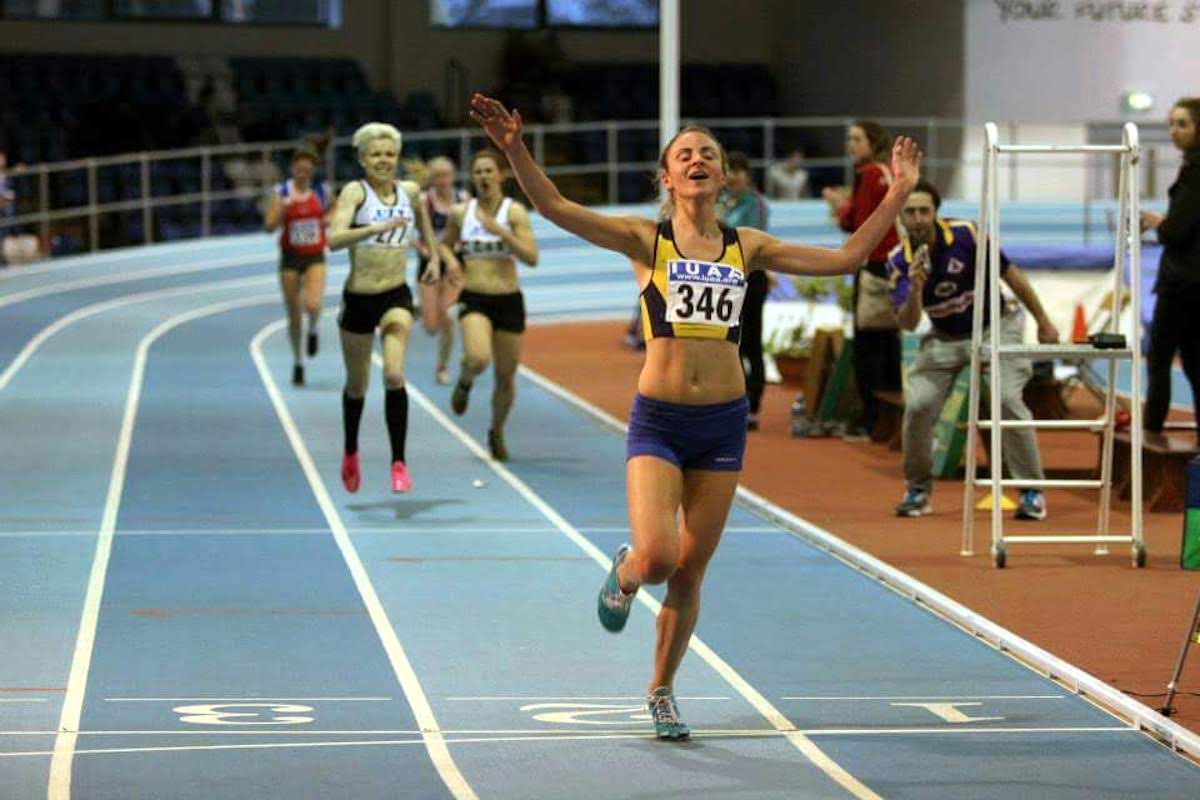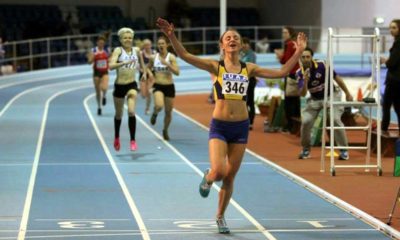
Irish middle distance runner and physiotherapist Ellie Hartnett talks about one of the most important parts of anyone’s training: recovery.
Recovery – probably an under utilised and undervalued element of most athletes training.
I know in my own experience this is something I have struggled with. And may be the difference between performing well and underperforming
As athletes we are used to putting our bodies through gruelling hours of training – hill sprints, long tempos, long runs, heavy gym sessions and speed and lactic work. However all this work is null and void if we don’t allow out bodies to adapt to the training and truly reap the rewards.
What is recovery ? And why is it important ?
Recovery is : the act or process of becoming healthy after an illness or injury. In a general sense this is true however for athletes we need to think of this ‘illness’ as our training and this is the stimulus which brings about the adaptation which leave us primed to compete.
Adaptation : the very reason we train is so that we adapt and mould our bodies to be able to tolerate the stimulus we want it to tolerate; namely racing, competing and chasing the clock.
Training drives General Adaptation Syndrome (GAS) – (Hans Style) This is how the body responds to training in the short term with a series of responses to the stimuli and then in the longer time the body responds with adaptation (neuromuscularily and physiologically- including endocrine, immune system).
Recovery can take on many different forms
Fuel/nutrition – post exercise carbohydrate replenishment is hugely important especially in distance athletes who utilise these stores every time we train. Apps such as Fitr Woman, my Fitness Pal can ensure we meet calorie requirements and allow our bodies to recover optimally.
Related: Emily Hosker-Thornhill tells us how to optimise our fuelling for training and racing.
Protein seems to be the buzz word used these days and consumers are constantly taught to reach for the protein option snack. This is an important aspect of recovery but we need to remember that we can only absorb a certain amount of protein in one sitting (20-25g) and so we don’t need to go over board either, wasting money on more expensive snacks that we are not going to benefit from.
Athlete rehydration is hugely important and I know I have fallen victim to under performing when I have not adhered to this. Additional salt/ electrolyte will facilitate absorption and may be necessary after long gruelling workouts when high salt losses have occurred.

Sleep
As I am working as a physiotherapist in a busy private practice this can be difficult to do. Early 6am starts and late evening finishing can leave me short on sleep, making it difficult to train and then compete at my best.
Most sleep experts say you should maintain a regular sleeping pattern, going to bed and getting up at the same time everyday.
This is difficult on to do with changes in working shifts but I try to keep it as normal as I can.
RELATED: Advice on improving your own sleep skills
Tips for good sleep hygiene include : avoiding caffeine too close to bed time , try to have your last coffee 12 hours before bed time (or bed at 11pm , last coffee at 11am) I got this tip from Orla Walsh a dietician I found online who has lots of helpful advise.
Make sure your bedroom is cool and dark as both of these factors improve sleep.
Rest for the body and mind
This is an element many really struggle with. I think our frequent use of technology does not help calm our busy minds [Probably now more so than ever – Ed.]
Facebook/WhatsApp/instagram messages pinging and keeping us from sleeping mean our minds are in a constant state of unrest. I now have a 10pm timer on my phone which switches my phone to do not disturb mode.
I’m also trying to practice reading my book in bed rather than lookign at my phone screen. My work is fairly physically active with long hours spent on my feet teaching classes or working one to one with patients in the gym. This coupled with the physical aspect of my job- massage, mobilisations means it is difficult to truly rest after a morning session or before an evening session.
What about active recovery?
This is a day which we have programmed in every week. Every Wednesday we swim for anywhere from 40 mins to an hour. This is a day off the legs where we are still active, but we get out of the pool feelin refreshed rather than drained and heavy. The pool and the water are a nice way to step away from the familiar environment of a track/ trail or road. And I always leave the pool feeling nicely rested and often a little sleepy.
Our training is programmed in blocks of 4 or 5 week cycles. In built into this is an active recovery / rest week.
This usually includes light gym and mobility sessions, easy runs and possibly one workout at lower intensity and volume. We look forward to these weeks and can focus on other aspects of our lives such as seeing friends and family planning in a night off without commuting to a track or training and we often leave this week hungry to start the next block of training.
What about my compression socks?
In my opinion the following are just adjuncts and unless you’re getting the vital factors (sleep, nutrition and rest) correct then these additional factors will not be as effective.
Hot/cold therapy, compressive garments and stretching. All of these help the overall recovery process more from a psychological standpoint then physical. But we cannot underestimate the impact the mind has on the body.
By setting aside time to do these recovery strategies we are putting our mind into a state of recovery which can’t but be helpful to aid our recovery.
Related: Is icing good for runners?
Are you a fan of Fast Running? Then please support us and become a patron. For as little as the price of a monthly magazine you can support Fast Running – and it only takes a minute. Thank you













